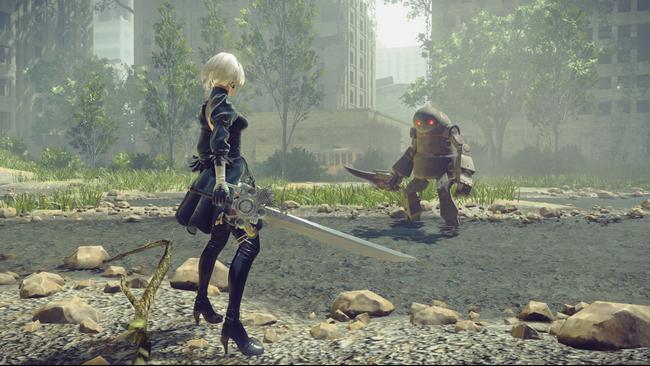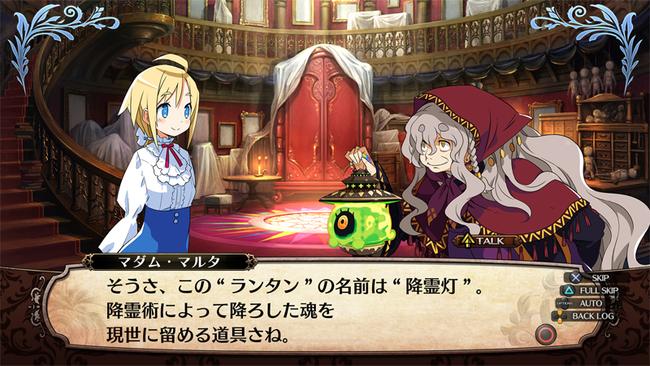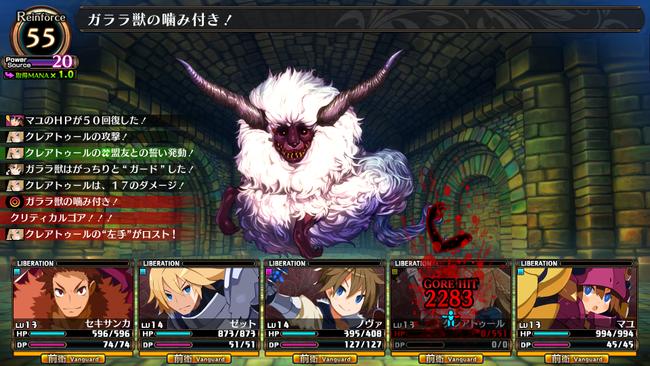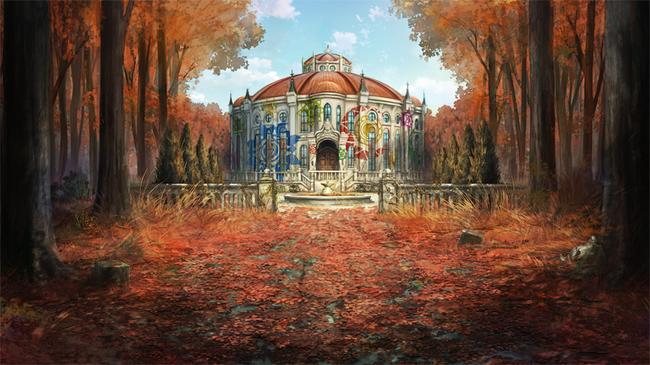
I Hate That I Can't Talk About Why I Love Labyrinth of Galleria
One of the problems with reviewing RPGs, or any narrative-heavy game in general, is the fact that the experience of playing through the game and discovering the story beats for yourself is at the core of a games’ design. Sometimes this means that it’s almost impossible to talk about a game, divorced from its story – and usually, that’s ok. With others, you might have to make a few concessions. Sometimes, you have to draw a line on how much of a game’s story’s themes, if not its content, you want to end up spoiling. As long as you aren’t completely ruining the experience for a prospective player, that’s fine, right?
Of course, that’s not always as simple as it sounds. One of gaming’s greatest strengths as a medium is how the very nature of both a game's mechanics and its narrative can be upended or modified at any moment, or how core aspects of a game’s design can be toyed with, per a game’s narrative. Some of my favorite games of all time do this – whether it be Danganronpa V3, NieR Automata, Undertale, or more. These are all games that I strongly feel should be experienced blind – but, also, what makes them so special, makes them hard to talk around in a review. The twists. The surprises; the moments when each of these games “break the rules”, and open the player’s mind to what exactly might be possible in their respective narratives.

I didn’t review NieR Automata when it first came out, and I’m honestly kind of glad that I didn’t have to. It’s a fantastic game (one that we ultimately awarded our RPG of the Year 2017 award, even), but what I most enjoyed about the game was getting to experience its story without the worry of spoilers. I know, as a player, I’m not alone in valuing that, and it’s always something that I try and consider when writing my reviews.
I’ll stop beating around the bush; late last year I imported the as-of-now Japan-only sequel to Labyrinth of Refrain, Labyrinth of Galleria. If you read my Top 10 Games of 2020 post, you’d know that I fell in love with it. That’s good! It’s always great when I play a game that I end up really resonating with. The problem was why I loved it; that was because of aspects of the game and narrative that I would really rather not spoil for potential players.

To put it as broadly as I possibly could – Labyrinth of Galleria is a game that feels like it was designed to match the exact type of story that it wanted to tell, and the game design was dictated to that very desire. When I reviewed Labyrinth of Refrain back in 2018, I said that the overwhelming feeling of the dev-team putting their all into the game was what endeared me to it, and Labyrinth of Galleria gave me the very same feelings, but even stronger than before.
What makes Labyrinth of Galleria special are aspects of the game that are clearly meant to be a surprise, going by what was showcased of the game prior to its launch. When the developers themselves clearly want aspects of the game to remain hidden for players, to enhance the weight of those parts of the game and story, not only can I not help but respect that decision – but especially when that decision has resonated with me on a personal level, I simply don’t want to potentially ruin the chance of that same sort of engagement for others. Especially when the game is unlikely to receive an English localization until next year, at the earliest.

That’s all well and good if I’m telling some friends of mine my impressions, but when I’m tasked with writing a critical review for something, that becomes a problem. I have to choose between respecting the sanctity of a developers intention for how they want players to experience their game (as well as the sanctity of those players’ experiences), or doing my due diligence to talk about all aspects of a games design, and how they work in tandem to deliver the emotional response that it did. For me, Labyrinth of Galleria is a 10 out of 10 video game; but I wouldn’t want to put my name on a review that had to try and explain that without actually touching the aspects of the game that well and truly fueled that score.
So, I’m at an impasse.

I could stop caring about the spoilers, and just rip into what makes the game tick – but I care entirely too much about the game to let myself do so. I can talk around it all I want, but the more that I do, the more I’m assured to look like a crazy person rambling on about something that I’d increasingly look like I had no idea what I was talking about. It’s a binary that I’m hopeless to escape from, and so the review that I’d hoped to write to justify my love for the game will likely have to wait for another day; likely well after the hopeful localization, years down the line. Maybe. I still want to write that review eventually, but it’s not like this problem will ever really go away.
It’s an ironic situation I’m trapped in – one of the reasons I love writing about games in the first place is the ability to highlight games that might otherwise have fallen off the radar. Being able to be the person that helps a game become more well-known is fulfilling, and it always fills me with joy to discover that somebody that had read my impressions ended up buying and loving a game. It’s fulfilling in a way few other things can be; so being unable to properly explain the reasons why I love one of the best games I’ve played in years feels much like a curse. Maybe it’s enough of a testament to the game’s quality that I refuse to budge an inch, even at the cost of my ability as a critic; regardless, I hope folks can understand exactly why I’ve grappled with this pain whenever they get to play Labyrinth of Galleria for themselves.